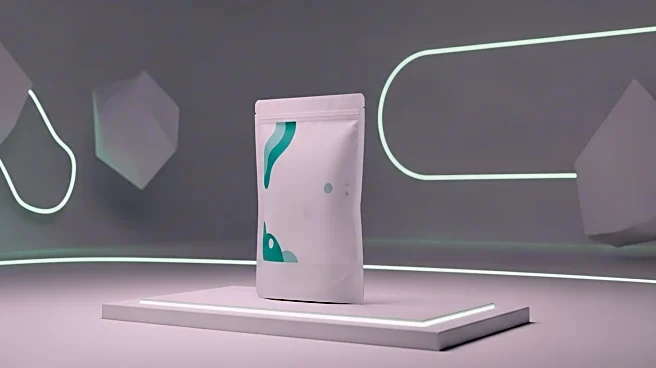What is the story about?
What's Happening?
Northwestern University professors Timothy Wei and SonBinh Nguyen have developed a non-toxic, recyclable, and compostable material called GO-Eco, which serves as a replacement for plastic and toxic 'forever chemicals' in food packaging. This material, made from graphene oxide, offers water and oil resistance and enhances the strength of paper-based packaging. GO-Eco aims to reduce the environmental and health impacts associated with traditional packaging materials, such as microplastics and PFAS, which have been linked to various health risks.
Why It's Important?
The development of GO-Eco is crucial in addressing the growing demand for sustainable packaging solutions. As governments phase out harmful materials like PFAS, alternatives like GO-Eco could significantly reduce pollution and health risks. This innovation supports the shift towards environmentally friendly materials, potentially decreasing the prevalence of microplastics and toxic chemicals in the environment and human bodies. The success of GO-Eco could lead to widespread adoption in the food industry, promoting sustainability and safety.
What's Next?
The next steps for GO-Eco include obtaining FDA approval and scaling up production. The developers plan to introduce GO-Eco in disposable tableware and trays, aiming to replace styrofoam and other harmful materials. As more companies test and adopt GO-Eco, it could become a standard in food packaging, driving further innovation in sustainable materials. Continued research and development will focus on expanding the applications of GO-Eco beyond food packaging.
Beyond the Headlines
GO-Eco's development highlights the potential of nanomaterials like graphene oxide in creating sustainable solutions. This innovation reflects a broader trend towards environmentally friendly technologies, emphasizing the importance of reducing reliance on harmful chemicals. The success of GO-Eco could inspire further research into nanomaterials and their applications in various industries, contributing to a more sustainable future.
















